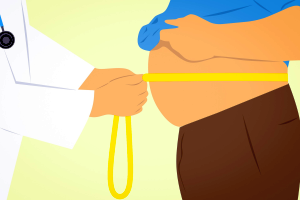Weight Loss and Migraine
Last month the Endocrine Society reported on a meta-study about migraine and weight loss. Although the outcome of the study isn’t necessarily a surprise, the “why” and “what now” are not so simple.

The title of the press release tells part of the story. “For migraine sufferers with obesity, losing weight can decrease headaches”. A report was shared at the society’s annual meeting, based on a study in Italy and the USA. Lead study author Dr. Claudio Pagano summarized the findings this way:
Weight loss in adults and children with obesity greatly improves migraine headache by improving all the main features that worsen migraineurs’ quality of life. When people lose weight, the number of days per month with migraine decreases, as does pain severity and headache attack duration.
Dr. Claudio Pagano
Essentially, people with obesity (these aren’t just any patients) who lost weight had fewer headaches, less intense headaches and less disability. Their migraine attacks also didn’t last as long.
Perhaps one’s first question is – how did these people lose weight? Some lost it by surgery, others by more conventional methods (for example, they started eating a healthier diet).
So the problem is, it’s very difficult to tell why the migraine attacks lessened in these patients. For example, the weight loss could have been a side effect of better eating habits, or exercise – which improved the patient’s health overall. Or a patient might switch medications – going from one that tended to cause weight gain but didn’t help much with symptoms, to one that helped more.
So the question for doctors and patients is – is it really helpful for migraine patients to try to focus on losing weight?
This is probably a very individual question. If migraine attacks motivate you to do what it takes to lose weight, great. Losing weight will almost certainly improve your health over all, long term.
But focusing on “symptom” of weight gain may be the wrong approach for some people. Something else – switching medication, avoiding sugar and flours, getting exercise – may be more directly related to fighting migraine than losing weight.
(This may remind you of some of the headlines that were coming out a couple of years ago – see Migraine because your Weight isn’t “Normal”?)
If you are in the “obese” zone, consider taking small steps to improve your lifestyle overall. Rapidly dropping the pounds may not be as helpful as losing weight slowly and naturally because you’re learning to eat a healthier diet.
And remember – just because someone is “overweight” doesn’t automatically tell you why they are overweight. Weight gain is a complex issue. It’s worth it to talk to your doctor and look at long term solutions.
But whatever the cause of weight gain, Dr. Pagano reminds us that it’s worth the effort to investigate your own situation and take it seriously.
Weight loss reduces the impact of conditions associated with obesity, including diabetes, hypertension, coronary heart disease, stroke and respiratory diseases. Obesity and migraine are common in industrialized countries. Improving quality of life and disability for these patients will greatly impact these populations and reduce direct and indirect healthcare costs.
Dr. Claudio Pagano
